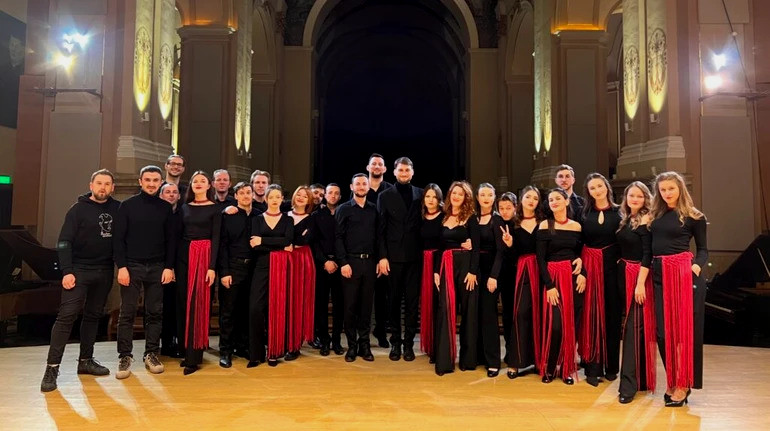The "Homin" Choir, led by Vadym Yatsenko, will perform and record all choral works of Mykola Leontovych in honor of the composer’s 150th anniversary. The concert will take place on August 31 at 19:00 in the Lviv Organ Hall.
This information is provided by the Ministry of Culture and Strategic Communications.
This concert marks the first in the series "Leontovych. Homin Choir". During the event, the Liturgy of St. John Chrysostom will be performed.
"Choral arrangements by Mykola Leontovych are not just harmonizations, but a reinterpretation, enhancement, and exhibit high mastery and exceptional creativity in working with folk material," the statement says.
The ministry noted that tickets for the concert were sold out back in June. Thus, the choir will make a recording of the concert, which will be available for viewing on the Ukrainian Live mobile app.
Mykola Leontovych was born on December 13, 1877, in a priest's family. However, his mother often sang Ukrainian folk songs, and his siblings learned music from an early age and became singers. Mykola's father, Dmytro, although he was a priest, could play various musical instruments and became the first teacher for the future composer.
Later, he studied singing by notes at the Shargorod Spiritual School and could read complex parts in church choral works.
In 1892, Leontovych entered the Podilian Spiritual Seminary in Kamianets-Podilskyi, where he also studied music, singing techniques, violin, piano, and more. Simultaneously, he began working on arrangements of folk melodies, inspired by the works of Mykola Lysenko. He even dedicated his second collection of Podilian songs to him in 1903.
Leontovych's body of work includes more than 150 choral arrangements of folk songs, among which are "Shchedryk", "Kozaka Nesut", original choral compositions, sacred music (Liturgy of St. John Chrysostom), and an unfinished opera "On Rusalchyn Easter".
The composer created unique choral compositions based on folk melodies. His Christmas carol "Shchedryk" has become a symbol of New Year celebrations around the world.



